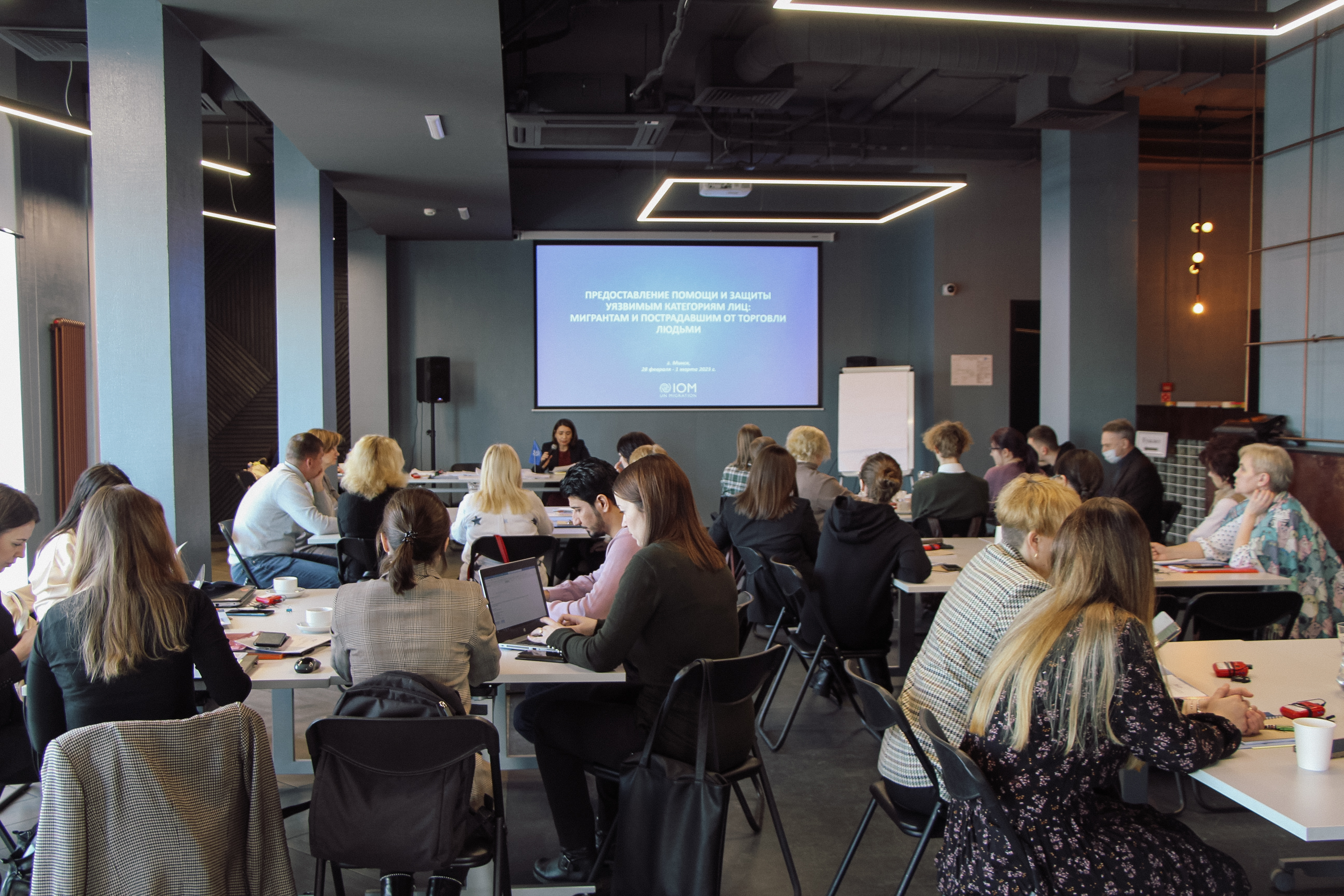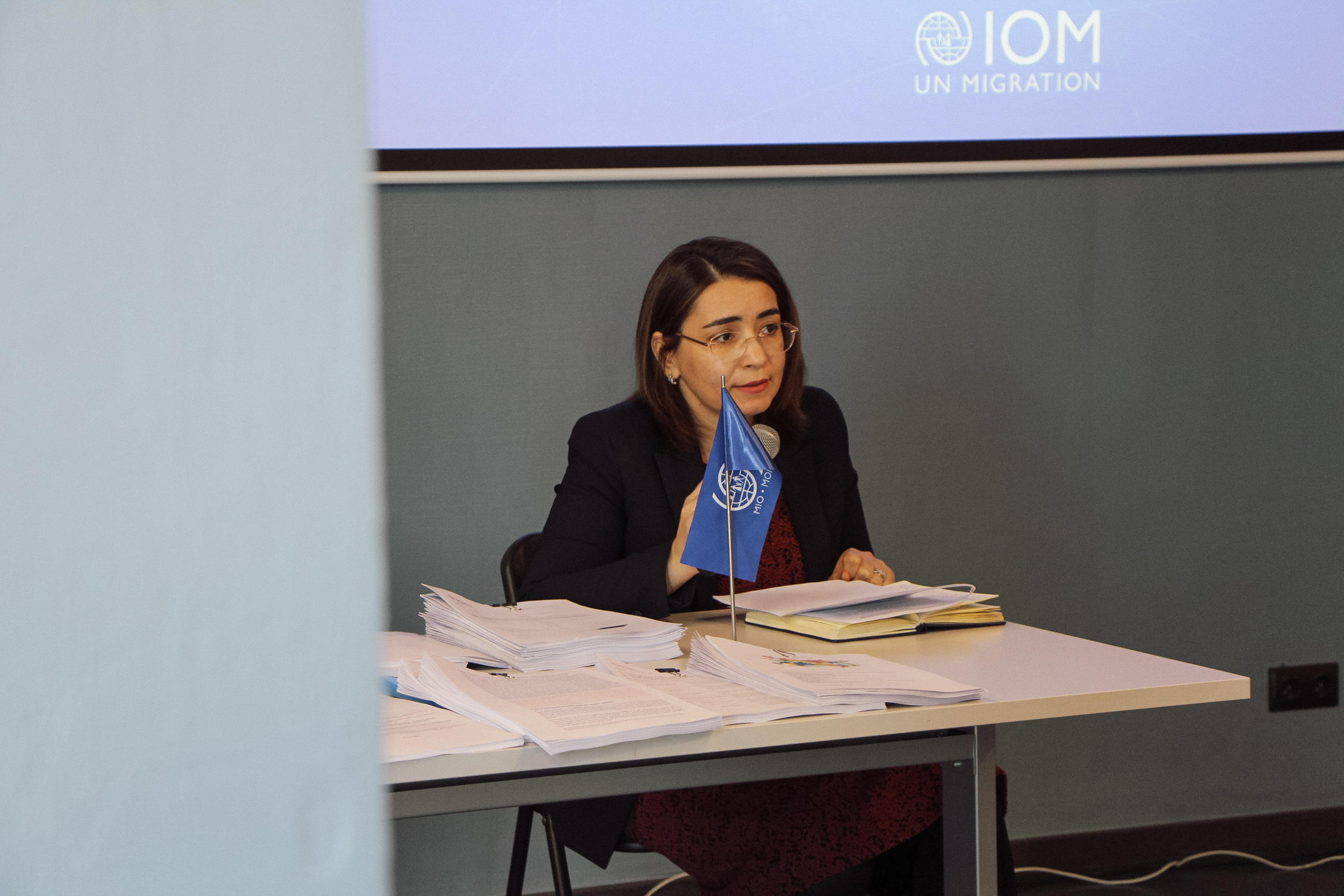-
Who We Are
WHO WE AREThe International Organization for Migration (IOM) is part of the United Nations System as the leading inter-governmental organization promoting since 1951 humane and orderly migration for the benefit of all, with 175 member states and a presence in over 100 countries. IOM has had a presence in Belarus since 1994.
About
About
IOM Global
IOM Global
-
Our Work
Our WorkAs the leading inter-governmental organization promoting since 1951 humane and orderly migration, IOM plays a key role to support the achievement of the 2030 Agenda through different areas of intervention that connect both humanitarian assistance and sustainable development.
- Data and Resources
- Take Action
- 2030 Agenda
Humanitarian workers in Belarus master skills in case management
Minsk, Belarus – Belarus is increasingly becoming a transit and destination country for vulnerable migrants. According to the Displacement Tracking Matrix (DTM) report, there are over 9,000 Ukrainian refugees and 1,300 other vulnerable migrants in the country. Besides, the issue of human trafficking remains relevant with 97 victims of trafficking – 40% of whom are kids – identified and assisted by IOM in 2022.
IOM together with its NGO partners is working to identify and provide assistance to people in such vulnerable situations. The recent two years specifically taughtmany lessons– first, when starting from summer 2021 thousands of migrants have become stranded in Belarus, then in 2022, when thousands of Ukrainians have been fleeing the war through or to Belarus. The level of humanitarian emergency continues to require cohesive actions and effective cooperation between humanitarian actors.
Now that the cooperation and referral mechanisms are in place, specialists working directly with vulnerable people need support in improving their skills and a platform to discuss real-life cases. This week, IOM brought together in Minsk representatives of partner NGOs working with migrants and victims of trafficking from across the country, as well as IOM field staff for a training on protection and assistance to vulnerable migrants and trafficking victims.

“Migrants are considered vulnerable overall, however some of them have significant protection risks. Women, children, including unaccompanied ones, persons of older age and people with disabilities may be subject to increased insecurity, poverty and marginalization, exacerbating their vulnerabilities to all types of violence, exploitation, and abuse. Provision of protection-sensitive support to them along with basic needs assistance is increasingly crucial”, - outlined IOM Belarus Chief of Mission Mahym Orazmuhammedova in her opening remarks.

The training itself is unique not only for Belarus, but for the whole region as well. It focused on equipping frontliners with practical tools to apply a protection-sensitive case management approach to individual migrants’ cases. Experts from IOM’s regional office in Vienna walked the participants through the whole process of working with a beneficiary – from meeting a person for the first time through the provision of assistance to the case monitoring and closure.
“I am now well positioned to assist migrants throughout the whole process. I know where to start, how to follow-up and where to finish”, - commented one of the training’s participants.
The frontline workers enhanced their knowledge of case management, including essential counselling, individual needs assessments, provision or referral to targeted protection services to ensure human rights and fundamental freedoms of beneficiaries are observed.




